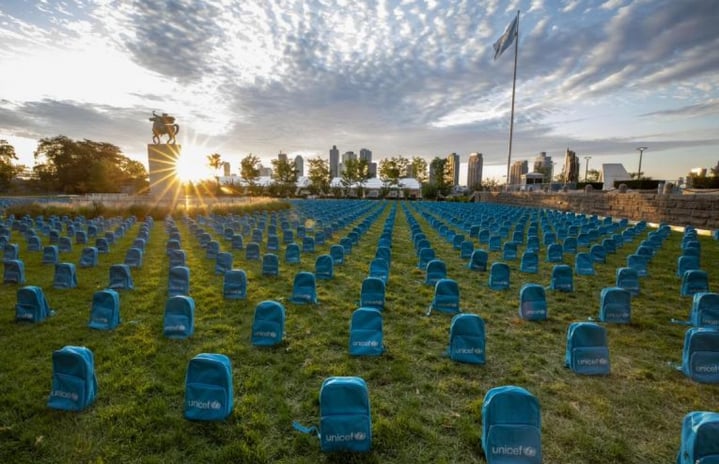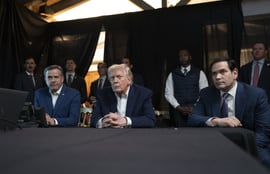United Nations Children's Fund (UNICEF), on Sunday, unveiled an installation demonstrating the devastating scale of child deaths recorded in conflict zones during 2018 at the UN headquarters in New York.
The display, which will remain open until September 10, is evocative of a graveyard with 3,758 backpacks, each representing the loss of a young life, arranged in rows.
The installation is intended as a message to world leaders while the annual United Nations General Assembly approaches and many parts of the world are returning to school.
Once the installation is taken down, the backpacks will be donated to support children’s education.
“UNICEF backpacks have always been a symbol of hope and childhood possibility,” said UNICEF Executive Director Henrietta Fore.
“In just two weeks, world leaders gathering at the UN General Assembly will celebrate the 30th anniversary of the Convention on the Rights of the Child. This installation should remind them of the stakes”.
As per the 2019 Annual Report of the Secretary-General on children and armed conflict, more than 12,000 children were killed or maimed in conflict zones last year. The figure is the highest on record since the UN began monitoring and reporting the matter.
However, the aforementioned are only verified incidents and actual death tolls are likely to be higher. UNICEF estimates that children lost their lives in a quarter of these incidences.
Children are subject to heavy consequences during ongoing conflicts in Afghanistan, the Central African Republic, Somalia, South Sudan, Syria, Yemen and other zones. The vast majority of child casualties in armed conflict are caused by the continued and widespread use of explosive weapons including airstrikes, landmines, mortars, improvised explosive devices, rocket attacks, cluster munitions and artillery shelling,
“As many children go back to school this week, we are drawing attention to the thousands of children killed in conflict zones and whose tragic loss will forever be felt in their homes, classrooms and communities around the world”, said Fore.
“The remarkable gains made for children in the last 30 years clearly show what we can do if we harness the political will to put children first”.




